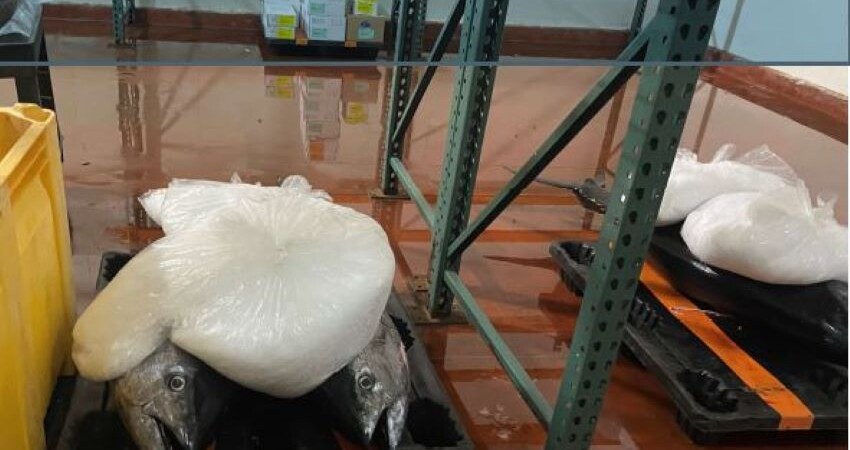San Diego recreational fishermen were fined by the State Department of Fish and Wildlife (CDFW) for poaching mahi mahi, yellowtail and bluefin tuna. The fishermen were fined $145,000 after a six-month long investigation showing more than 5500 pounds of fish sold for more than $26,000 to commercial markets, according to the news release from CDFW.
The officers investigated David Haworth, 60, of San Diego, and Nicholas Haworth, 28, of La Jolla who in addition to buying and selling recreationally caught fish, failed to document fish once they landed, and facilitated the operation of an unlicensed fish business and falsified landing documents to hide the poaching crimes.
CDFW six-month long investigation revealed the evidence behind the Haworths, as well as uncovered their association with a network of other San Diego recreational fishermen including, Lucas Dirkse, 29, Mitchell Bradford, 36, Brandon Demelo, 24, and David Brown, 68. Tanner Whitmarsh, 30, and Trevor Whitmarsh, 25, of El Cajon were also involved.
All individuals that sold to David and Nicholas Haworth were found engaging in many illegal fishing activities such as failing to register as a commercial fishing vessel, failing to obtain require permits through NOAA Fisheries, selling fish caught on a commercial passenger vessel, and falsifying documents among many other violations.
Acting chief of CDFW’s Law Enforcement Division said, “Letting these crimes continue without robust enforcement and prosecution jeopardizes the sustainability of California’s commercial fishing industry and the majority of those commercial fishers who comply with the law. Illegal sales of recreationally caught fish bypasses both paths for sampling and accounting of total catch.”
“Many of us live in San Diego because we appreciate the region’s natural wonders, including the fish that populate our rivers and oceans,” said city attorney, Mara W. Elliott. “California’s strict environmental laws exist for one reason: to protect nature and to ensure its existence for generations to come. Our ability to enjoy the outdoors depends on vigorous enforcement and prosecution of the laws that preserve our surroundings.”
Fisheries biologists in the state along with federal partners manage the recreational and commercial fishing sectors separately, with both having individual rules and regulations to ensure sustainability.
To find more information on the sentences and fines go to the CDFW website.







